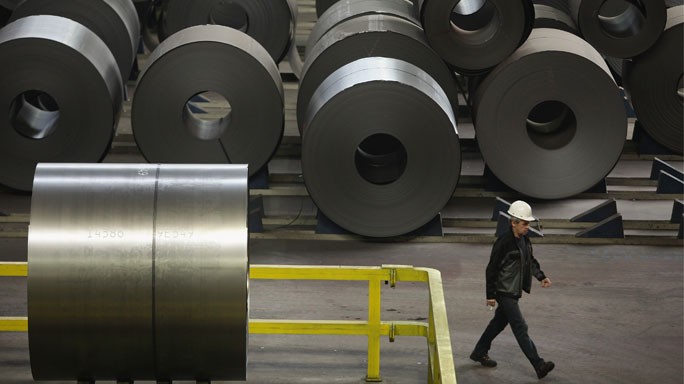United in their frustration over Chinese products being sold below production cost on the European market, more than 5,000 workers and managers from the steel and other sectors from 17 European countries gathered in Brussels for a joint protest.
Ahead of the protests, Eurofer, Europe's main steel association, urged the EU Commission to do more to clamp down on cheap Chinese products flooding the European market, which has been grappling with low prices for raw materials and finished steel products.
Last week, the world's largest steelmaker, ArcelorMittal, reported a staggering net loss of of just under $8 billion (7.16 billion euros) for 2015, more than four times the previous year's net loss of $1.86 billion. German heavyweight ThyssenKrupp also slipped into the red in its first quarter of the year.
Last Friday, the European Commission launched probes into imports of Chinese steel and imposed import duties on cold-rolled flat steel from China and Russia, which it says were sold at below cost - what is known as "dumping." It means that of 37 so-called "trade defense measures" currently enforced by the EU, 16 involve Chinese products.
But steel bosses say that is not enough to save a vital industry in Europe. "Since the financial crisis, 85,000 jobs have been lost in the European steel industry, in the past six months alone, 7,000 more jobs have gone," Eurofer President Geert Van Poelvoorde said ahead of the protests.
Steel bosses are also lobbying against China being granted "market economy status" (MES), which they say would lead to even more job losses. Without MES, the WTO's 162 member countries have more leeway to slap anti-dumping measures on cheap Chinese products.
"Granting China MES is giving it an unlimited license to dump," Milan Nitzschke, spokesperson of Aegis, an alliance of around 30 European sectors from 17 countries, which helped organize Monday's protest, said in a statement released ahead of the demonstration.
The steel industry is a key industry in Europe, supplying and impacting on the continent's massive car sector as well as its engineering firms, telecoms companies and other manufacturers. Germany is the biggest steel producer in Europe.
See more at:
DW





